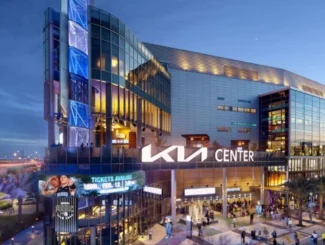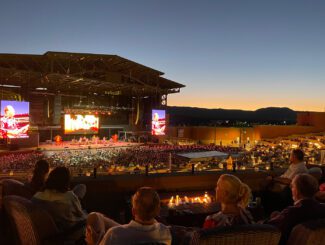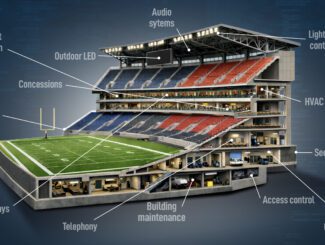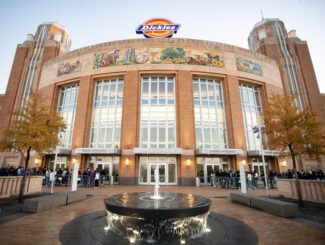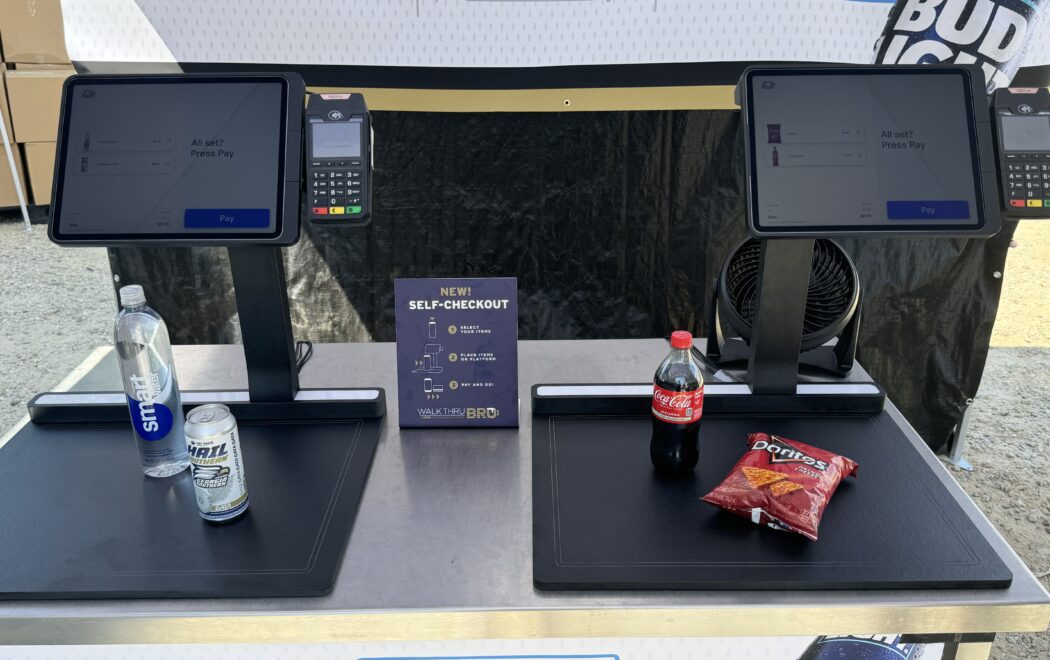
Caterer Aramark has deployed optical-scanning self-checkout devices from a German company called VisioLab at Georgia Southern University this football season, in what Aramark is calling a “proof of concept” deployment for what looks like a potential competitor to similar devices from Mashgin.
Mashgin’s breakthrough optical-scanning devices have won quick acceptance at stadiums and arenas the past few years, mainly because venues say they allow faster checkout of concession items with fewer staffing requirements at stands using the devices. Physically, Mashgin devices are basically a platform surrounded by metal bands above and on the platform’s sides. Customers put their items on the platform, where they are scanned by cameras inside the metal arms. The device’s AI-based software then recognizes the items, and prices for the scanned items instantly show up on the screen of the attached payment device.
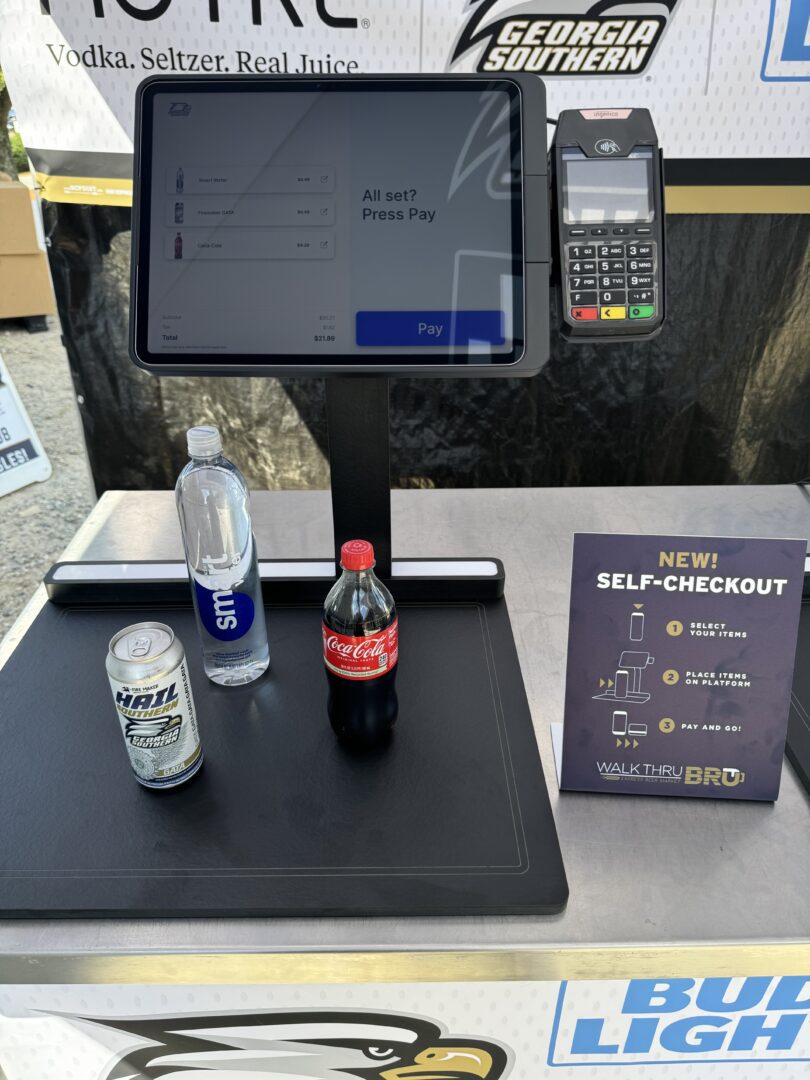
As of last fall, the Palo Alto, Calif.-based Mashgin had devices in more than 70 stadiums across the U.S., a number that has no doubt grown since then with recent deals like caterer Levy’s decision to install 60 Mashgin devices at Chicago’s Soldier Field ahead of the 2024 NFL season. According to venue tech representatives we have interviewed, the Mashgin devices are attractive because of their comparitively lower cost (especially when compared to the capital expenditures needed to build a checkout-free technology concession stand) and because of their flexibility, since they can be moved around to different placements in a stadium.
Competition for concessions tech is heating up
While Mashgin has gained a number of fans in the stadium-tech community, some other venue tech professionals we have interviewed think the upfront cost of Mashgin devices is too high, especially when compared to alternatives like self-scanning kiosks, which use bar codes to identify products. The devices from VisioLab, which we have only seen in photos, appear to be more streamlined than Mashgin’s, with an integrated iPad from Apple used as the camera and computing technology, according to VisioLab. While we haven’t yet gotten any discrete pricing information for the VisioLab products, our guess is that they may be both lighter and easier to move around and priced lower per-unit than the Mashgin devices.
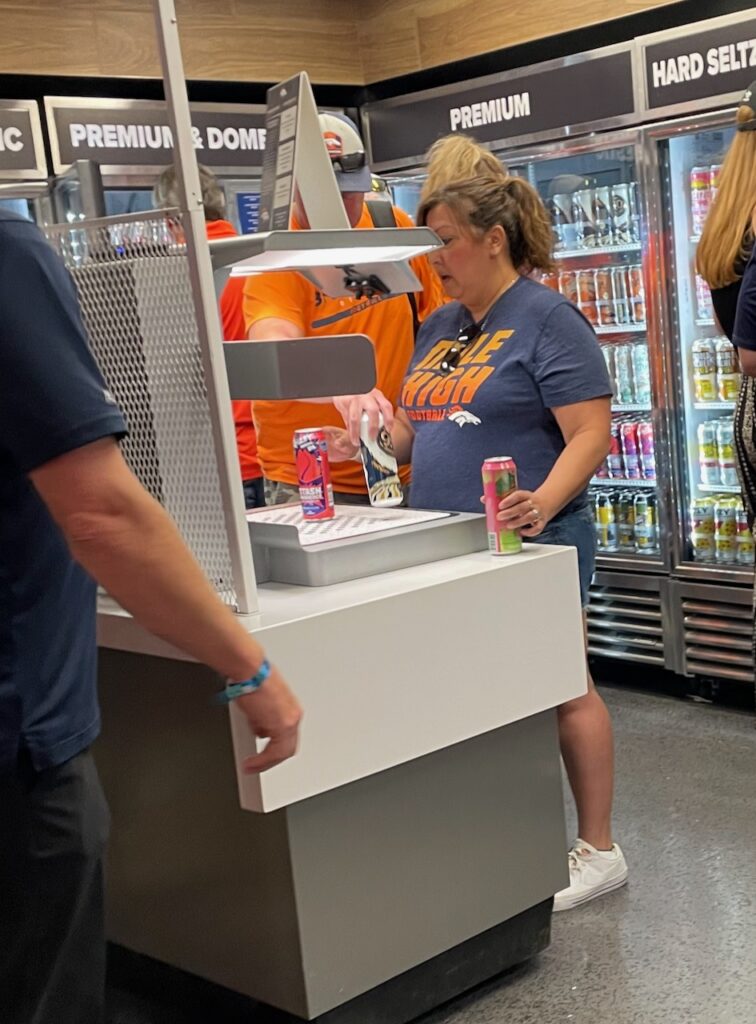
Alicia Woznicki, vice president for design and development at Aramark Sports + Entertainment, said in a reply to emailed questions that “we had a great first event with this technology” at the recent home opener at Georgia Southern’s Allen E. Paulson Stadium.
Woznicki touted the VisioLab device’s streamlined construction, saying “Its lightweight stand design and simple set up allows us the flexibility to move units to other sports once the football season has ended, thus maximizing its reach and impact.” Woznicki said Aramark had previously used VisioLab devices in cafeteria and dining-hall spaces it manages, before bringing it to Georgia Southern for “a live proof-of-concept” installation at Georgia Southern.
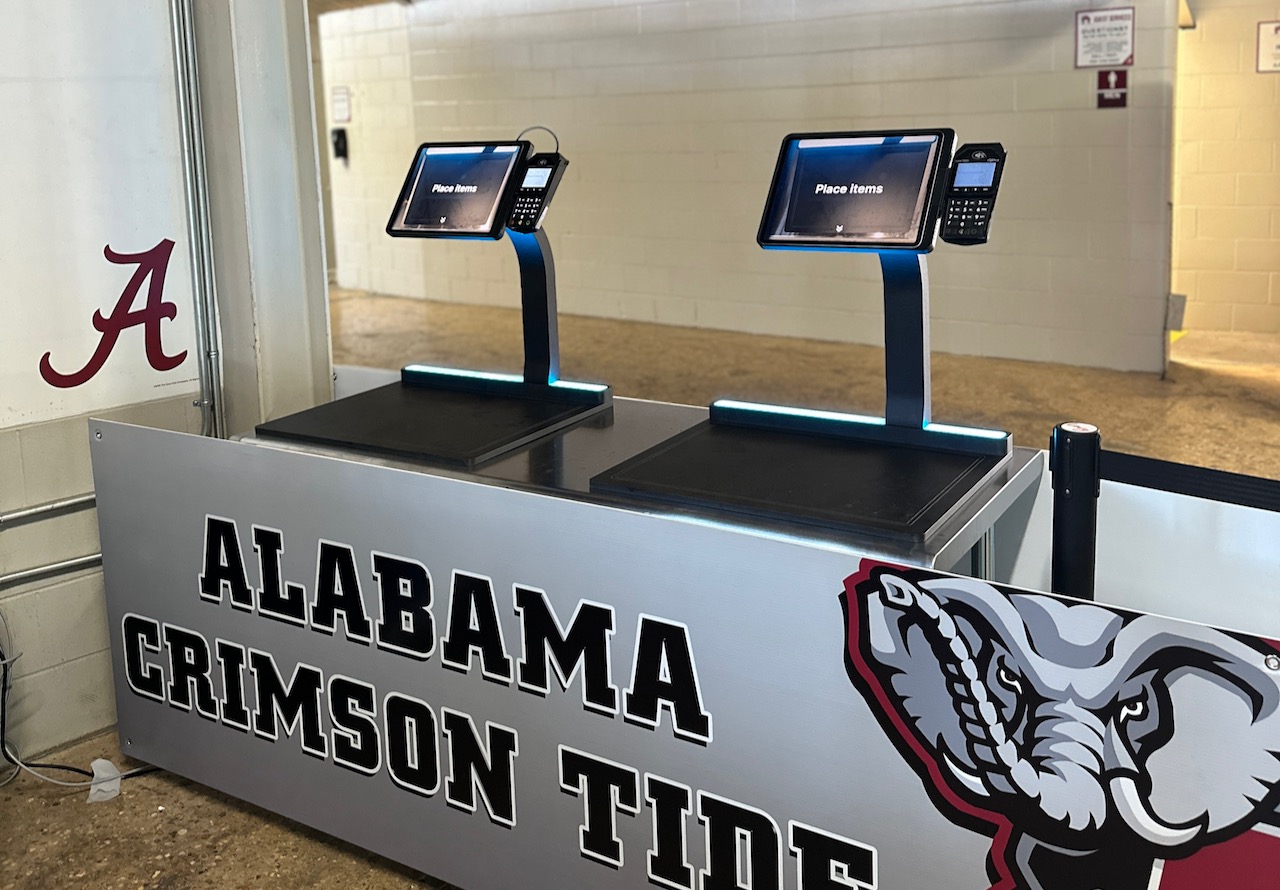
At Georgia Southern the two VisioLab devices that have been deployed are being used at a single Aramark “Walk Thru Bru” concept stand, where customers grab drinks in a single-file format with payment devices at the end. At other Walk Thru Bru stands at other stadiums, Aramark has used both live staff and Mashgin devices for checkout. While the deployment at Georgia Southern is small, a positive experience could mean more deployments for VisioLab in the future across Aramark’s wide stadium customer base.
Iwo Gernemann, chief operating officer and co-founder of the Osnabruck, Germany-based VisioLab, said that the company has so far deployed 25 of its devices across several U.S. stadiums, including Bryant-Denny Stadium at the University of Alabama and the Desert Diamond Arena in Glendale, Ariz. Gernemann said the primary market for the VisioLab devices so far have been “university cafeterias and company canteens,” with 70 active locations across Germany and the U.S., predominantly. Mashgin, while successful in stadiums, has also scored many wins for its devices in convenience-store and airport locations.



